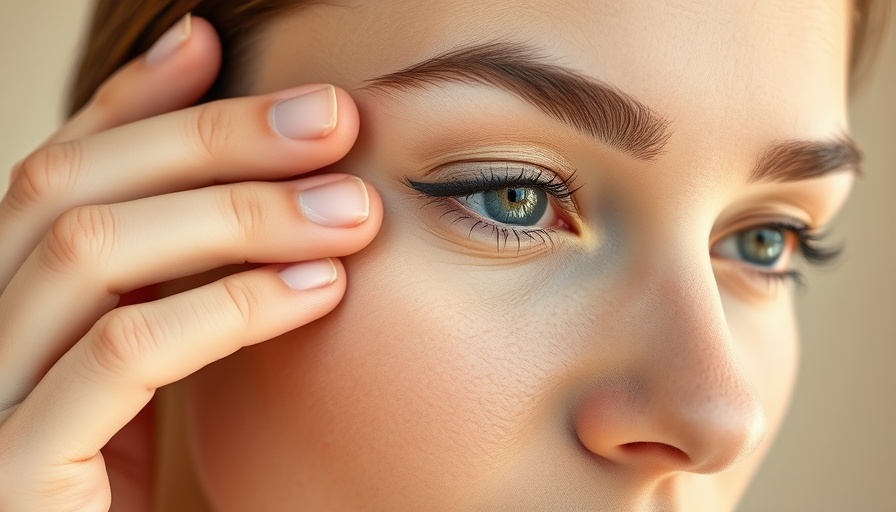
Why Dehydration Might Be Hidden Among Your Health Concerns
When it comes to dark circles, many of us often attribute them to a lack of sleep or simply genetics. However, there's another critical factor that can exacerbate this cosmetic concern—skin dehydration. With the rise of health issues like diabetes and high cholesterol, understanding how our bodies react to hydration becomes all the more paramount.
The Connection Between Skin Hydration and Dark Circles
According to dermatologists, dehydration can shrink the tissues of our bodies, including the delicate skin under our eyes. This tissue shrinkage makes dark circles appear more pronounced. The advice is clear: staying hydrated can improve your skin's resilience and help reduce the visibility of dark under-eye circles. If you're someone grappling with conditions such as diabetes, ensuring proper hydration might just be as significant as your diet in managing symptoms like fatigue and skin-related issues.
The Role of Nutrition in Skin Health
It’s not just about drinking water; your overall nutrition plays a vital role in skin hydration. Nutrient-rich diets high in antioxidants—like those found in fruits and vegetables—help combat oxidative stress that can lead to skin aging and pigmentation problems, intensifying dark circles. Incorporating foods that are beneficial for metabolic health, such as leafy greens, avocados, and fatty fish, can also help your body manage blood sugar levels, indirectly impacting skin health and appearance.
Understanding Your Body’s Signals: Dark Circles as a Health Indicator
While we might dismiss dark circles as purely aesthetic, they often reflect what’s happening inside. For individuals with diabetes or high cholesterol, dark circles could signal a need for dietary adjustments or a more vigilant health check. Recognizing this connection can empower you to seek medical advice and make necessary lifestyle changes.
Develop Healthy Habits for Lasting Change
Incorporating adequate hydration isn’t just a recommendation; it’s a lifestyle choice. Aim for at least eight glasses of water a day, or more if you are active or live in a hot climate. However, remember that hydration comes from the foods you eat too. Snacks like cucumbers, watermelon, and oranges not only quench your thirst but also provide the nutrients essential for maintaining healthy skin. Pair this with habits like intermittent fasting or a keto diet, depending on what suits your metabolic needs. These lifestyle choices can ideally support overall health and well-being.
Countering Misconceptions About Skincare
One common misconception is that applying topical solutions is the only way to tackle dark circles. While creams and serums can provide temporary relief, they often mask the underlying issues rather than address them. Understanding the holistic approach shines a light on the importance of nourishing your body from within. It might take time, but the cumulative impact of proper nutrition and hydration can make a significant difference.
Empower Your Health Journey
Integrating these practices into your daily routine leads to long-term benefits that extend beyond just your skin. With conditions like high blood sugar and high cholesterol frequently related to hydration and overall wellness, addressing hydration can have a holistic effect on your health. Knowing how to care for yourself in this way can motivate you to be proactive about your health.
In conclusion, while dark circles can be frustrating, they may also signal deeper health issues. Taking steps to improve hydration through diet and lifestyle changes could not only help your skin but also support your overall health. It’s time to blend self-care with self-awareness for a fresher look and a healthier life!
Stay engaged with your health; by learning more about how your lifestyle impacts your body, you can set yourself on a path to feeling and looking great.
 Add Row
Add Row  Add
Add 



Write A Comment